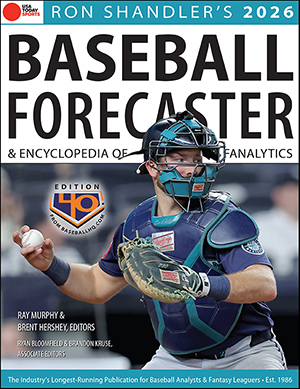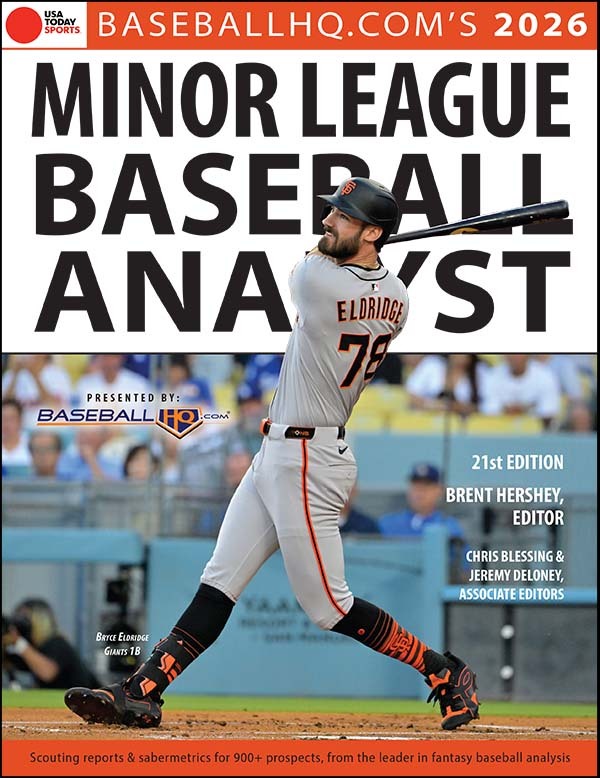
(*) ROTISSERIE: Challenges of salvaging a 2020 fantasy season
This article first appeared in the June 23 issue of Sports Weekly.
For all of the posturing over the past several weeks by MLB owners and players, they eventually have to come together and find a way to play something resembling a season.
Well, if you thought the discussions between MLB and the players union were contentious, wait until fantasy leagues start trying to figure things out. At least baseball has a single set of rules for everyone (especially if the universal DH is here to stay). Fantasy leagues have so many different formats, it might be close to impossible to figure out the best way to proceed.
Even if there aren’t any right answers, at least we can start posing some questions about how fantasy baseball can make sense this year.
Is a legit season possible?
In a word, no. Even as MLB is able to squeeze in a 60-game regular season, that’s just not enough to determine the best overall team.
From a statistical point of view, it’s extremely difficult to get a true sense of players’ performance levels in that small amount of time. Analysts always emphasize the dangers of placing too much importance on small sample sizes because hot and cold streaks generally even out over the course of 162 games. However, we won’t have that luxury in 2020.
Perhaps the single biggest factor in winning a fantasy baseball title – in-season management – will be significantly reduced in a shorter season. We now know the season will be nine weeks long. In formats with weekly transactions, that’s just nine opportunities to improve a roster.
No longer a marathon, fantasy baseball will become an all-out sprint.
A season worth playing?
One of the biggest complaints outsiders have about fantasy baseball is that the season is too long. Well, we have the perfect opportunity to test that theory since this year’s will be even shorter than a standard fantasy football season.
However, every fantasy format will require adjustments.
Head-to-head leagues are probably the most affected since those use regular-season standings to determine playoff participants, who then battle each other for the title.
With the usual two or three weeks needed for playoffs, only six or seven weeks remain for regular-season play. An eight-team league could possibly make it work, but nothing larger.
A sensible alternative would be to have all teams play against each other every week. In a 12-team league, for example, each team would have 11 different head-to-head matchups instead of only one. (Many sites already keep track of these results anyway.)
In a seven-week regular season, it provides 84 matchups instead of seven – and greatly reduces the possibility of ties in the standings.
Rotisserie leagues are based on the season-long accumulation of statistics. But there’s a real danger of small quantities of counting stats playing an oversized impact on the standings.
In last year’s 15-team Mixed LABR (League of Alternative Baseball Reality), the teams with the top stolen base totals had 140 and 134. Five teams were clustered between 99 and 106.
With a regular season roughly one-third as long, those totals are going to be much closer. There were even fewer wins and saves available than stolen bases, so imagine how narrow the margins could be in those categories – not to mention the ratio stats (batting average, ERA, WHIP), which are already measured to two or three decimal places.
It’s entirely possible for a team to be in fourth place on the final day in a Roto league and surge to victory. In a compressed format, it’s entirely likely.
Points leagues may be best positioned to handle the complications of a short season since everything players do is reflected in a single number. Similar to the all-play option in head-to-head leagues, points-based scoring helps create the largest possible sample to measure the relative strength of teams.
Rotisserie leagues may even want to consider switching to a points format for this season to make sure all teams put their best lineups forward and prevent any potential category manipulation down the stretch.
Keep rosters or redraft?
The most contentious issue in many fantasy leagues may be the status of rosters once play is ready to begin. Those who’ve already drafted likely did so before there was any indication the season would be delayed this long.
It seems like an eternity since we held the LABR auctions in Florida in early March, just before the sports world completely shut down. It might be possible to get everyone back together to wipe the rosters clean and draft again … but it’s impractical.
Most leagues probably waited a bit longer this spring and, as a result, still haven’t drafted yet. If finding a draft date is impossible, perhaps scrapping the season is a distinct possibility.
Keeper leagues face a difficult decision with player contracts, similar to what Major League Baseball players had to negotiate. If a fantasy league plays and crowns a champion, it seems reasonable to treat everything just like any other season. Contracts advance to the next year and salaries get their yearly increase.
However, there should also be room for exceptions based on unforeseen circumstances, such as season-ending elbow surgeries for Noah Syndergaard or Chris Sale. What if an MLB player chooses to sit out this season for health or personal reasons?
Perhaps each team in the league could designate a player as a free drop or a one-time contract exemption.
If the league can’t come to a consensus on how to handle 2020 contracts, why not suspend the league for this year, do a one-time redraft for fun, and pick things back up next season?
Next steps forward?
While it’s in the best interests of the players, teams and fans to have baseball this year, we have to acknowledge one major variable that may be impossible to control.
Despite the best efforts of everyone involved, the novel coronavirus could bring even the most well-crafted plans to a halt at any time. In the past week, several teams had players test positive for COVID-19, forcing MLB to shut down all spring training facilities for a thorough recleaning.
There’s a very real possibility, even if the season does start, a major outbreak could stop it dead in its tracks. Even if it’s only in one location, there’s no way to continue with 29 teams.
As optimistic as we’d like to be that we’ll have baseball in 2020, we must be prepared for the doomsday scenario as well.
Fantasy leagues need a contingency plan of their own. Make sure to nail down your league’s details before the MLB season gets ready to start. Send your leaguemates an email or organize a Zoom call so there’s no gray area about what happens next. Come to a consensus quickly. We’ve seen very clearly what can happen if you don’t.





-300x200.png)



